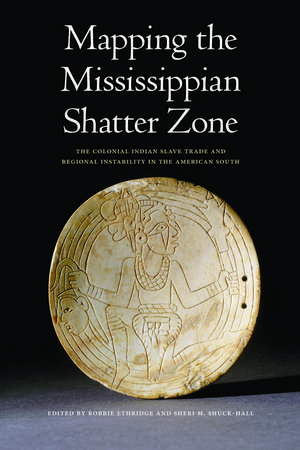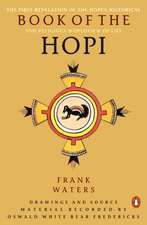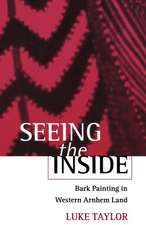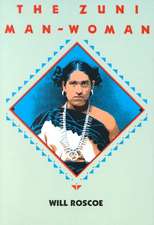Mapping the Mississippian Shatter Zone: The Colonial Indian Slave Trade and Regional Instability in the American South
Editat de Robbie Ethridge, Sheri M. Shuck-Hallen Limba Engleză Paperback – 31 oct 2009
During the two centuries following European contact, the world of late prehistoric Mississippian chiefdoms collapsed and Native communities there fragmented, migrated, coalesced, and reorganized into new and often quite different societies. The editors of this volume, Robbie Ethridge and Sheri M. Shuck-Hall, argue that such a period and region of instability and regrouping constituted a “shatter zone.”
In this anthology, archaeologists, ethnohistorians, and anthropologists analyze the shatter zone created in the colonial South by examining the interactions of American Indians and European colonists. The forces that destabilized the region included especially the frenzied commercial traffic in Indian slaves conducted by both Europeans and Indians, which decimated several southern Native communities; the inherently fluid political and social organization of precontact Mississippian chiefdoms; and the widespread epidemics that spread across the South. Using examples from a range of Indian communities—Muskogee, Catawba, Iroquois, Alabama, Coushatta, Shawnee, Choctaw, Westo, and Natchez—the contributors assess the shatter zone region as a whole, and the varied ways in which Native peoples wrestled with an increasingly unstable world and worked to reestablish order.
Preț: 211.00 lei
Nou
Puncte Express: 317
Preț estimativ în valută:
40.39€ • 42.43$ • 33.94£
40.39€ • 42.43$ • 33.94£
Carte tipărită la comandă
Livrare economică 12-26 martie
Preluare comenzi: 021 569.72.76
Specificații
ISBN-13: 9780803217591
ISBN-10: 0803217595
Pagini: 536
Ilustrații: 1 photo, 15 maps, 6 tables
Dimensiuni: 152 x 229 x 31 mm
Greutate: 0.7 kg
Editura: Nebraska Paperback
Colecția University of Nebraska Press
Locul publicării:United States
ISBN-10: 0803217595
Pagini: 536
Ilustrații: 1 photo, 15 maps, 6 tables
Dimensiuni: 152 x 229 x 31 mm
Greutate: 0.7 kg
Editura: Nebraska Paperback
Colecția University of Nebraska Press
Locul publicării:United States
Notă biografică
Robbie Ethridge, an associate professor of anthropology at the University of Mississippi, is the author of Creek Country: The Creek Indians and Their World, 1796–1816. Sheri M. Shuck-Hall, an associate professor of history at Christopher Newport University, is the author of Journey to the West: The Alabama and Coushatta Indians.
Contributors: Robin Beck, Eric E. Bowne, Robbie Ethridge, Mary Elizabeth Fitts, William A. Fox, Patricia Galloway, Charles L. Heath, Ned J. Jenkins, Matthew H. Jennings, Marvin D. Jeter, Paul Kelton, Maureen Meyers, George Edward Milne, Randolph Noe, Sheri M. Shuck-Hall, Stephen Warren, and John E. Worth.
Cuprins
1. Introduction: Mapping the Mississippian Shatter Zone
Robbie Ethridge
Robbie Ethridge
2. Events as Seen from the North: The Iroquois and Colonial Slavery
William A. Fox
William A. Fox
3. From Refugees to Slave Traders: The Transformation of the Westo Indians
Maureen Meyers
Maureen Meyers
4. "Caryinge awaye their Corne and Children": The Effects of Westo Slave Raids on the Indians of the Lower South
Eric E. Bowne
Eric E. Bowne
5. Catawba Coalescence and the Shattering of the Carolina Piedmont, 1540--1675
Robin A. Beck Jr.
Robin A. Beck Jr.
6. "Indians Refusing to Carry Burdens": Understanding the Success of Catawba Political, Military, and Settlement Strategies in Colonial Carolina
Mary Elizabeth Fitts and Charles L. Heath
Mary Elizabeth Fitts and Charles L. Heath
7. "The Greatest Travelers in America": Shawnee Survival in the Shatter Zone
Stephen Warren and Randolph Noe
Stephen Warren and Randolph Noe
8. Tracing the Origins of the Early Creeks, 1050--1700 CE
Ned J. Jenkins
Ned J. Jenkins
9. Alabama and Coushatta Diaspora and Coalescence in the Mississippian Shatter Zone
Sheri M. Shuck-Hall
Sheri M. Shuck-Hall
10. Violence in a Shattered World
Mathew H. Jennings
Mathew H. Jennings
11. Razing Florida: The Indian Slave Trade and the Devastation of Spanish Florida, 1659--1715
John E. Worth
John E. Worth
12. Shattered and Infected: Epidemics and the Origins of the Yamasee War, 1696--1715
Paul Kelton
Paul Kelton
13. Choctaws at the Border of the "Shatter Zone": Spheres of Exchange and Spheres of Social Value
Patricia Galloway
Patricia Galloway
14. Shatter Zone Shock Waves along the Lower Mississippi
Marvin D. Jeter
Marvin D. Jeter
15. Picking up the Pieces: Natchez Coalescence in the Shatter Zone
George Edward Milne
George Edward Milne
Afterword: Some Thoughts on Further Work
Robbie Ethridge
Robbie Ethridge
Bibliography
List of Contributors
Index
Recenzii
"Editors Ethridge and Shuck-Hall have crafted a unique anthology on a little-studied subject: the very specific cause-and-effect relationships of European contact with the Mississippian world of eastern North America."—C. R. Kasee, Choice
"This edited volume combines data from archaeology, anthropology, and history to provide one of the most complete syntheses available of the impact of European colonization on Native people in the American South."—Anthony Michal Krus, American Antiquity
"This is an excellent snapshot of a welcome resurgence in sophisticated research on the pre- and early colonial South."—Lynn A. Nelson, American Historical Review
"How did the complex Mississippian societies of the American South become the decentralized Indian societies of the eighteenth century? This volume's fifteen contributors answer that question anew by employing the concept of a "shatter zone" to identify the causes of instability and map its effects in time and place. Those achievements alone make Shatter Zone noteworthy."—Steven C. Hahn, Ethnohistory
"Ethridge, through her introduction, has placed this history in dialogue with a diverse scholarship on colonialism both in North American and elsewhere in the early modern world. Perhaps now this pivotal period, no longer forgotten, will instead enjoy the wider scholarly interest that it deserves."—Joseph Hall, Journal of Southern History
"Mapping the Mississippian Shatter Zone offers one of the most complete syntheses to date about colonization's impact on Southeastern Native societies. . . . The shatter zone approach and the book's multidisciplinary approach and multicausal view will offer scholars a useful guide to studying the transformation of Native worlds well beyond the Southern colonial era."—S. Matthew DeSpain, Journal of Anthropological Research









